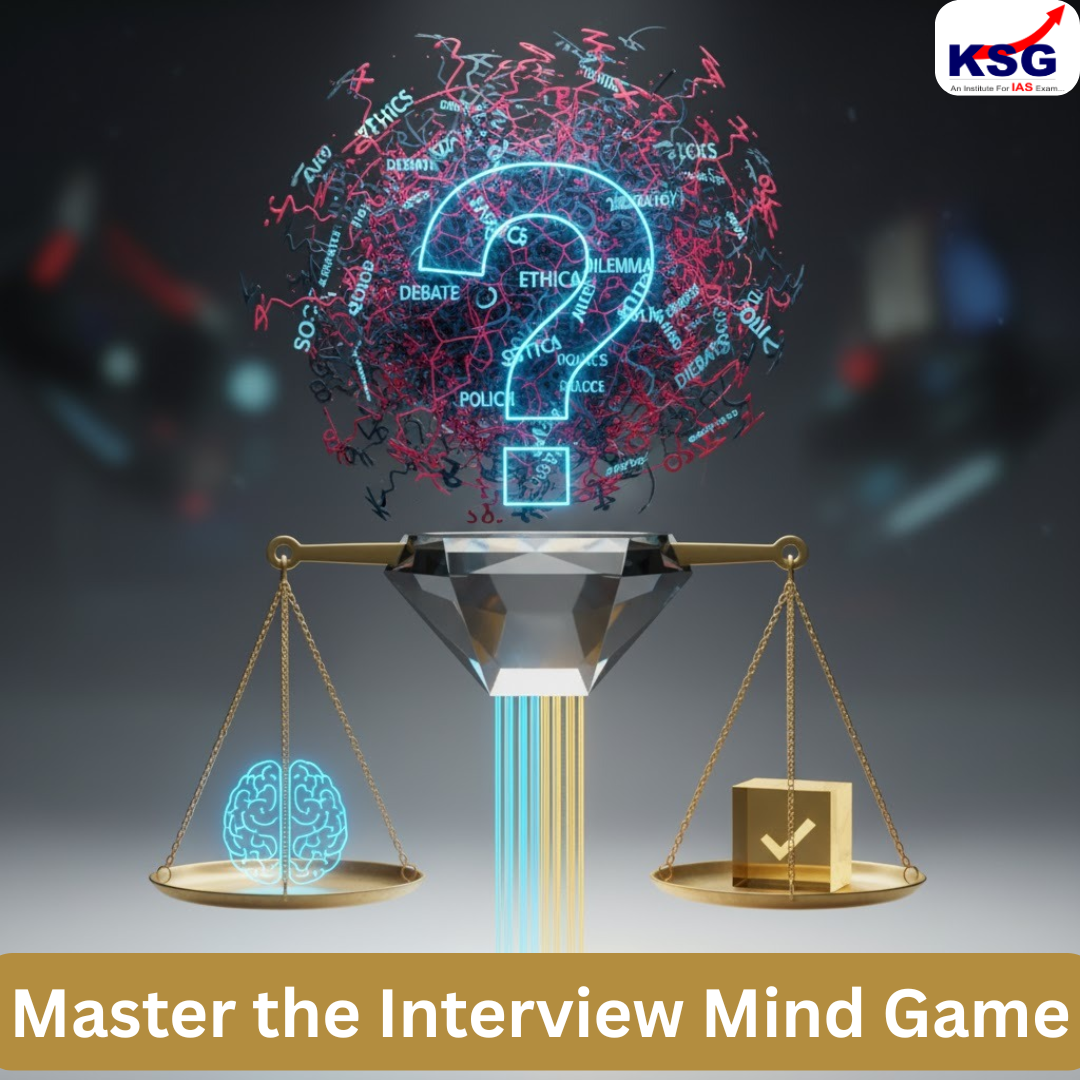Master the Interview Mind Game: Decoding Controversial Questions with Administrative & Psychological Theory
From Trap to Triumph: Master the Art of Decoding Controversial Questions in Your UPSC Interview.
Stress-Test Your Success: How to Use Administrative Theory to Deliver Unshakeable Answers.
By Dr A R Khan
We’ve all heard the stories: a candidate is sailing smoothly through their civil services interview when suddenly, the board drops a question like a lead balloon—a divisive social issue, a moral dilemma, or a critique of a government policy.
That moment isn't a trap; it's a high-stakes spotlight on your future administrative capacity. It tests not what you know, but how you think when the pressure is real. Your goal is to show the board that your judgment is unshakeable and informed. "Keep Calm and Think Bureaucratic."
Part I: The Broad Base (Why They Ask)
The interview board uses these complex questions to conduct a rapid assessment of your operational fitness for public service. They are looking for intellectual horsepower anchored by moral integrity:
Psychological Resilience (Stress Testing): Can you maintain Emotional Regulation and Cognitive Load Management? The board wants to ensure that personal biases do not instantly hijack your analytical process. Don't fold under pressure; rise to the occasion.
Systems Thinking (Administrative Theory): Civil servants must appreciate interconnectedness. Your response must demonstrate that you consider the legal, economic, political, and ethical domino effects of any decision, applying a holistic view of governance.
Constitutional Default (Governance Principle): They are verifying your primary allegiance. Your framework for action must always be anchored in the Constitution, the Rule of Law, and the principles of Natural Justice. Your Vedas are the Constitution and the Service Rules.
Part II: The Core Technique: The "2-S + 1-C" Framework
When faced with a difficult question, resist the immediate urge to agree or disagree. Instead, apply this structured approach to provide a measured response:
1. Structure (The Administrative Answer)
Acknowledge the complexity immediately using neutral language. (e.g., "Sir/Madam, that is a question of immense social and administrative complexity...") Briefly identify the key stakeholders and competing interests.
2. Standards (The Anchor)
Anchor your argument to an established, neutral principle. Default to the Constitutional Ethos (e.g., equality, dignity) or Administrative Efficiency (e.g., fiscal prudence, effective service delivery).
3. Conclusion (The Steer)
Provide a balanced conclusion using nuanced language that steers the answer toward a pragmatic, administrative action.
Part III: The Narrow Focus (Strategic Nuance)
To ensure your conclusion is both convincing and judicious, employ strategic nuance to signal both conviction and flexibility. This is the "Context is King" approach.
Anchor to Evidence: Frame your stand as a temporary conclusion based on available data. "My recommendation is anchored in the latest Impact Assessment Studies; however, this position must remain data-contingent."
Distinguish Roles: Separate policy design from execution. "While addressing the issue requires a Legislative Amendment, my immediate role as an Executive would be limited to ensuring the current rules are implemented with maximum fairness and transparency."
Prioritize the Vulnerable: Always return the focus to constitutional equity. "In any contentious trade-off, the Doctrine of Proportionality dictates that we first secure the interests of the most marginalized stakeholders."
Process Over Outcome: Emphasize how a decision is reached, not just what the decision is. "We must ensure the transparency and inclusiveness of the consultative process, as procedural justice is key to securing public trust."
A Final Encouragement
I take great pride in helping students develop a precise, reasoned stand for these complex situations. I have worked with numerous candidates to develop a reasoned position that perfectly aligns with their overall profile.
Remember, every controversial question requires a unique, contextually explained answer; a generic expression will never suffice. Your answer is your brand.
I encourage you to reach out and connect. We can work together to simplify these complex issues for your interview preparation. Please do not hesitate in getting back to me for any clarification—I'd love to help you simplify this. Let’s polish your thinking so your unique perspective translates into an unstoppable result. Level Up Your Interview Game
#UPSCInterview #UPSC2025 #PersonalityTest #UPSCPreparation #CivilServices #InterviewStrategy #DecodingControversy #UPSCQuestions #CSEInterview #IASInterview #IPSInterview #AdministrativeTheory #PsychologyInInterview #UPSCSuccess #CSEStrategy #ControversialQuestions #InterviewTips #PublicAdministration #Governance #MainsToInterview #AcingTheInterview #DecisionMaking #EthicalDilemmas #InterviewHacks #CivilServicesExam #ThinkLikeAnOfficer #UPSCGuidance #IASDreams #UPSCInsights #CSEPreparation

